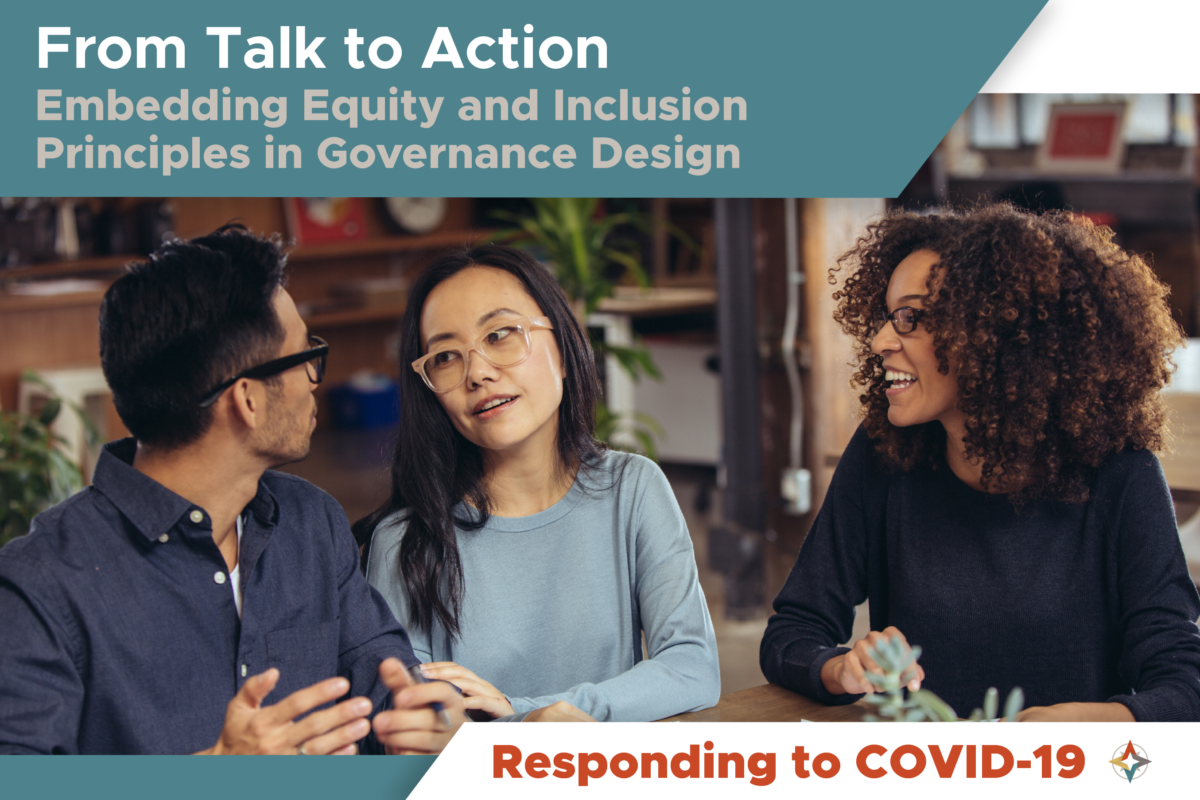Ensuring Equitable Governance of COVID-19 Response Initiatives

The ongoing COVID-19 crisis has created an explosion of needs across fields—from health care to education and everything in between. It is already clear that the pandemic is disproportionately impacting communities of color, magnifying structural and racial inequities such as limited access to health care and paid sick leave. We are heartened to see that philanthropists, nonprofits, corporations, and public officials are moving quickly to respond to urgent demands, but those in the social sector risk deepening existing inequities if we fail to address underlying power structures as we design solutions.
At Arabella, we see diversity, equity, and inclusion as critical components of effective philanthropy. We are increasingly working with many of our clients to design or update their governance structures in ways that explicitly apply these values. Our team recently paused to reflect on this work and compile our most important lessons and insights for operationalizing equity in governance design. We believe this resource will be especially useful for those looking to design and launch new programs, initiatives, and other endeavors in response to this crisis.
As we work with funders to pivot and respond to COVID-19, we are pushing ourselves and our partners to think critically about who has access to the decision-making table. Those most impacted by the health, social, and economic crises that contributed to and will be heightened by this pandemic—that is, those with relevant lived experience—must be included in the design and implementation of response efforts. To that end, our new article provides concrete actions funders can take to operationalize their commitment to equity and inclusion from the outset, specifically focusing on how funders can acknowledge power dynamics and share power equitably.
In a crisis such as the one we face now, there is a strong temptation to choose the fastest and easiest path forward and to make decisions quickly, which often means reverting—whether consciously or not—to old ways of working that reinforce structural inequalities. We recognize that there is a need to move quickly and flexibly to address immediate, urgent needs. However, as the focus shifts to medium- and long-term investments to address COVID-19, philanthropists should take extra care to build thoughtful approaches to collaborative governance.
We are driven to explore new practices in advancing equity and continually reflect on our work to ensure our commitment to our social mission is fully expressed in the solutions we design to the challenges our world faces. The journey toward a more equitable philanthropic sector is a long one, and we look forward to hearing feedback and advancing our practice. We invite you to read the report to learn more and to reach out if you’d like to further this conversation.
